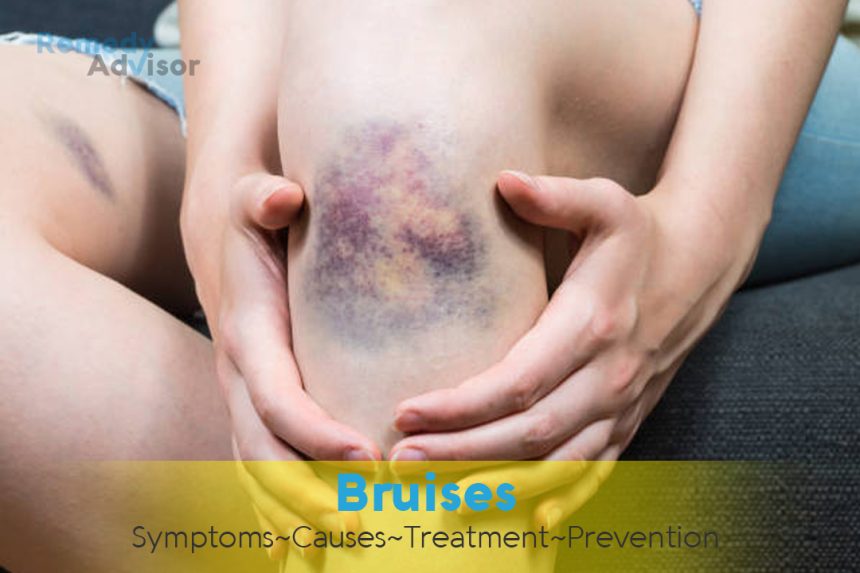What is it
A bruise is a discoloration of the skin that appears shortly after an impact injury caused by a blow or a fall, for example. Such an injury causes damage to blood vessels and subsequent bleeding into the skin. Bruises can also arise from taking certain medications that interfere with blood clotting (including aspirin), thereby causing more bleeding into the skin and tissues.
Bruises typically start out as reddish tinges but change to black-and-blue or purplish hues before finally turning greenish yellow as the body reabsorbs the blood.
Symptoms
- A reddish tinge on the skin after an acute injury, followed within a few day’s time by black-and-blue discoloration that may give way to greenish yellow discoloration.
What causes it
Bruising can occur whenever blood vessels have been damaged by trauma, disease, or after taking certain medications, such as non-steroidal anti-inflammatory drugs, or NSAIDs, which include aspirin, cortisone medications, and prescription anticoagulants. The staining which appears on the skin is essentially blood which has established in the area just beneath the skin surface or over the muscle.
What if you do nothing
Most bruises will heal by themselves in a week or so.
Home remedies
Reduce swelling
Apply an ice pack as soon as possible to the area. The cold constricts the blood vessels and thereby stops the bleeding. The more blood that collects after an injury, the more pronounced the bruise will be and the longer it will take to disappear.
Put the ice pack over a clean towel and place it directly on the injury site. Hold it there for about 20 minutes. Depending on the size and severity of the bruise, repeat every two or three waking hours for the first 24 to 48 hours to minimize swelling.
Switch to heat
After 48 hours, apply heat to the area for 15-minute increments, three times a day. A warm bath or shower, a warm washcloth, a heating pad on a low or medium setting, or a whirlpool all work well to open the surrounding blood vessels and speed up-healing.
Minimize pain
For minor discomfort, take acetaminophen according to label directions. Avoid NSAIDs such as aspirin and ibuprofen because of their tendency to thin the blood and possibly cause additional swelling and bruising.
Elevate
If possible, keep the damaged area raised above the level of the heart. This will allow blood to flow away from the injured area, helping to decrease bleeding and swelling.







